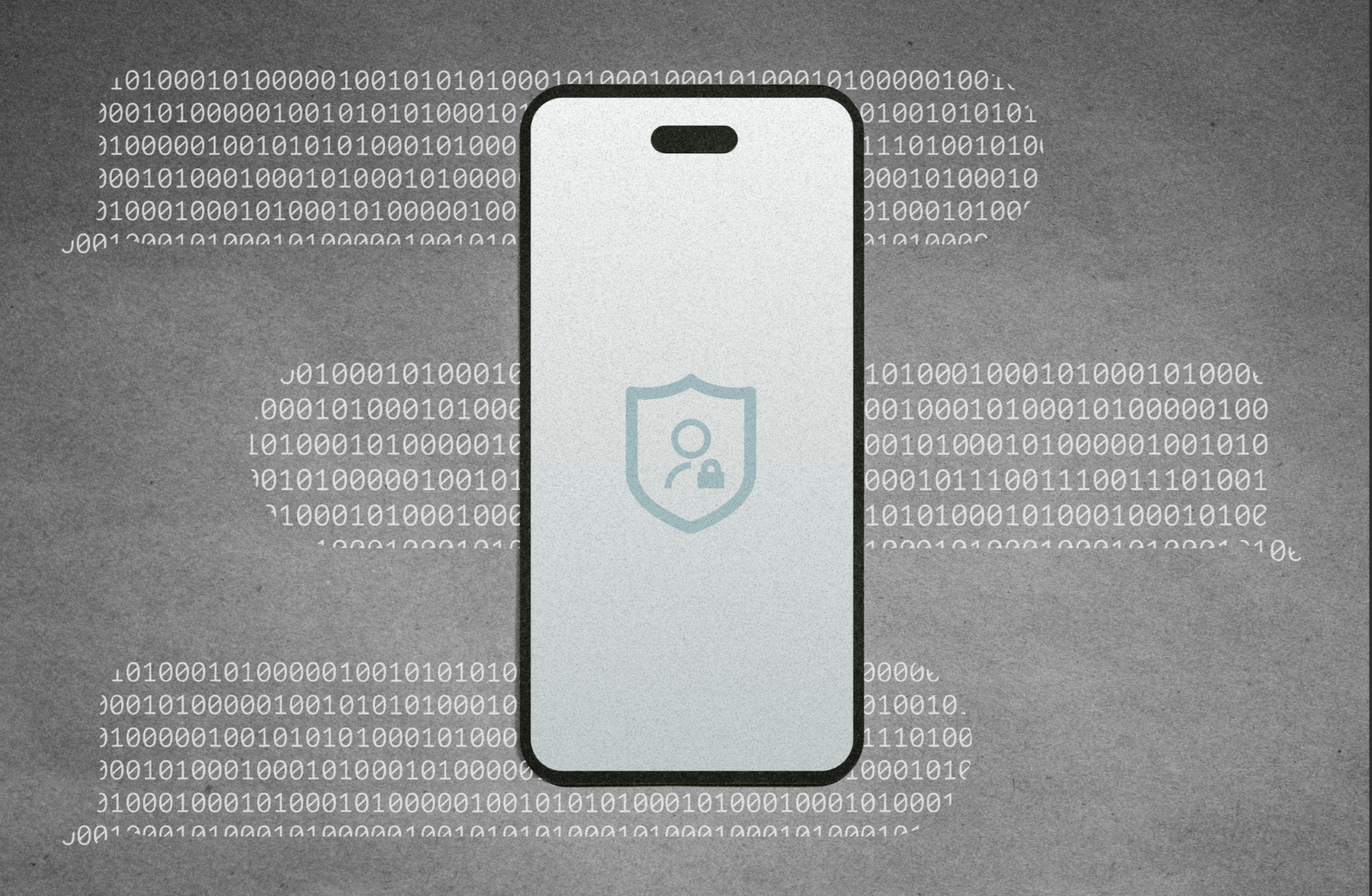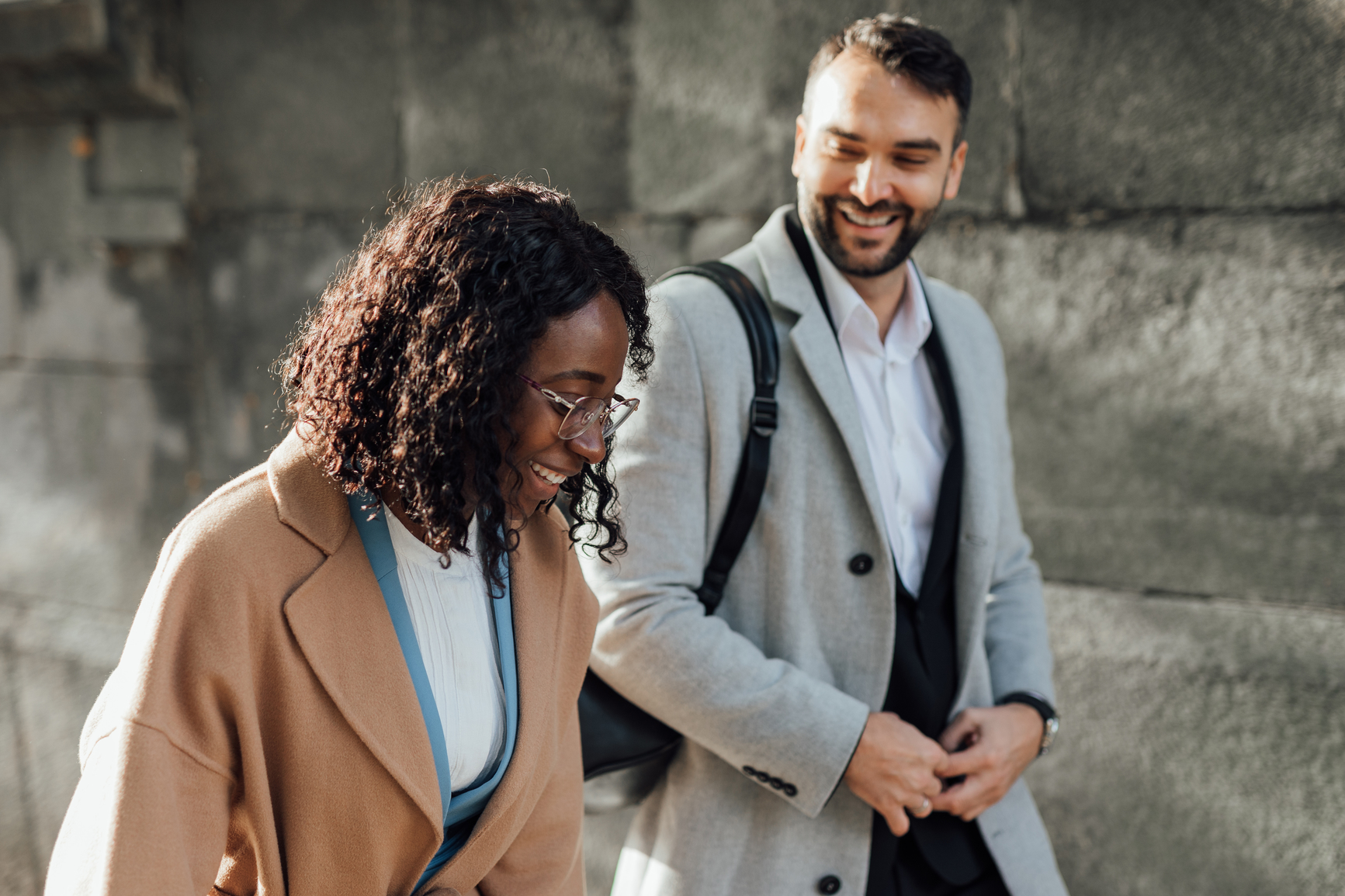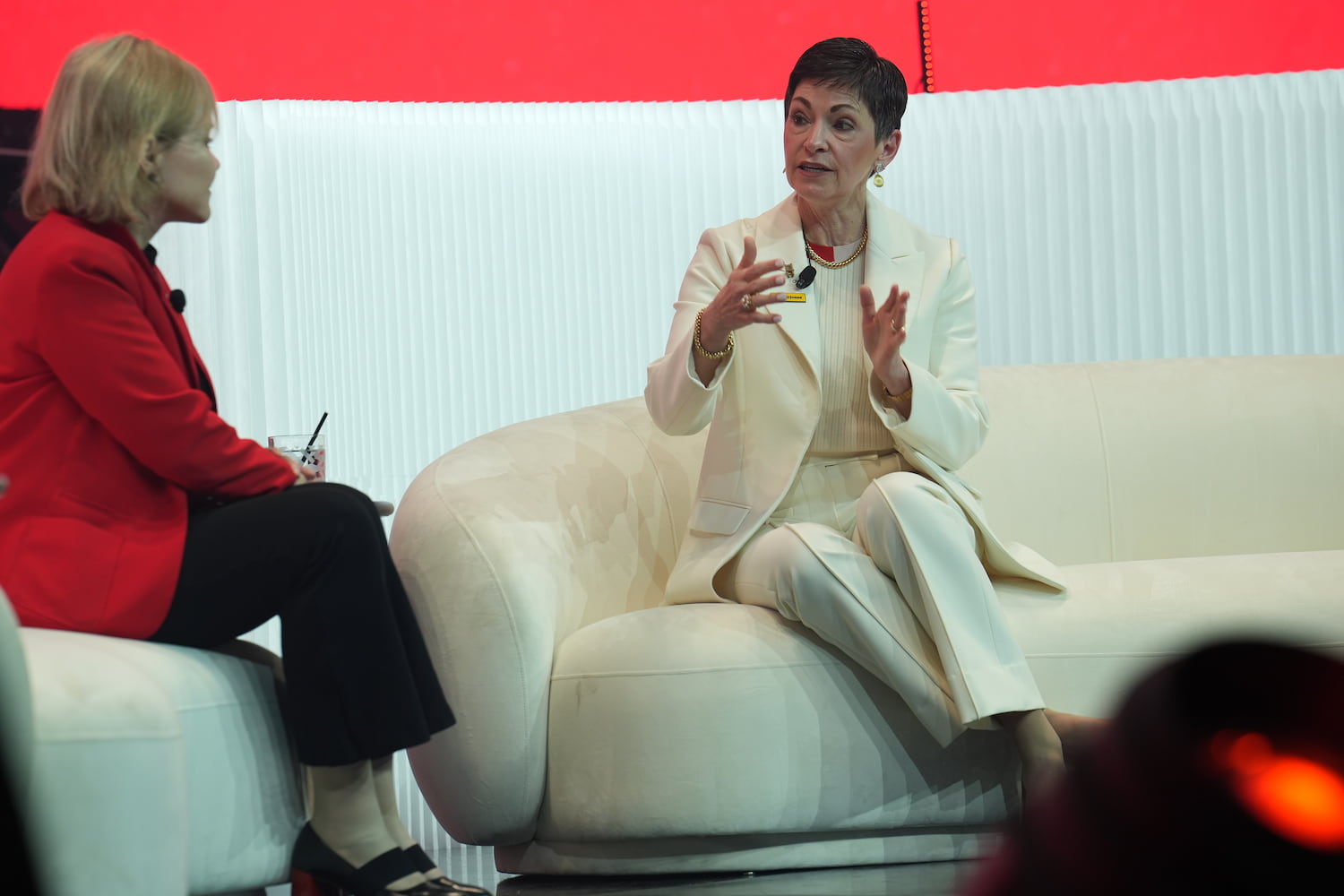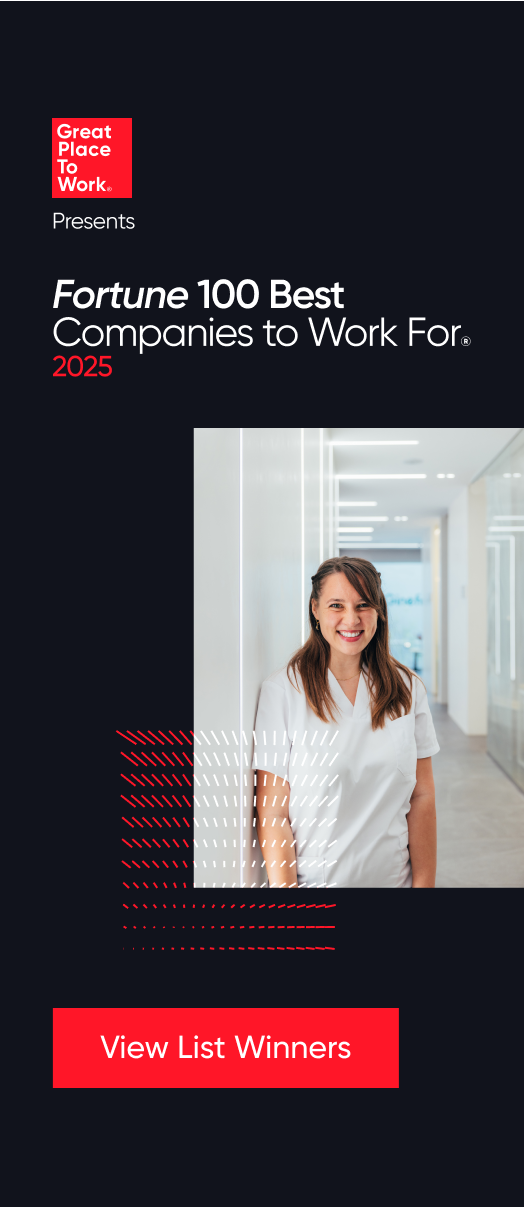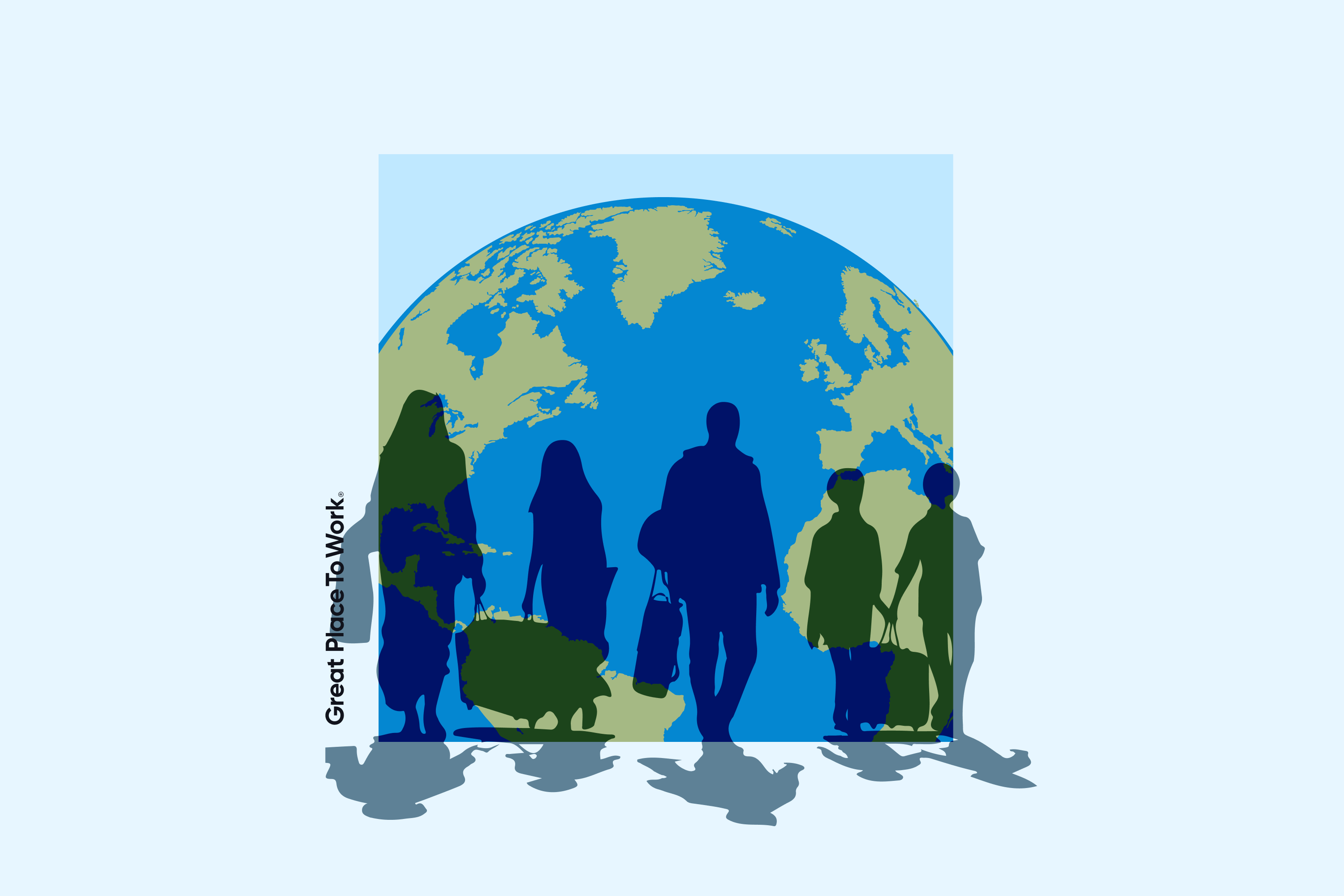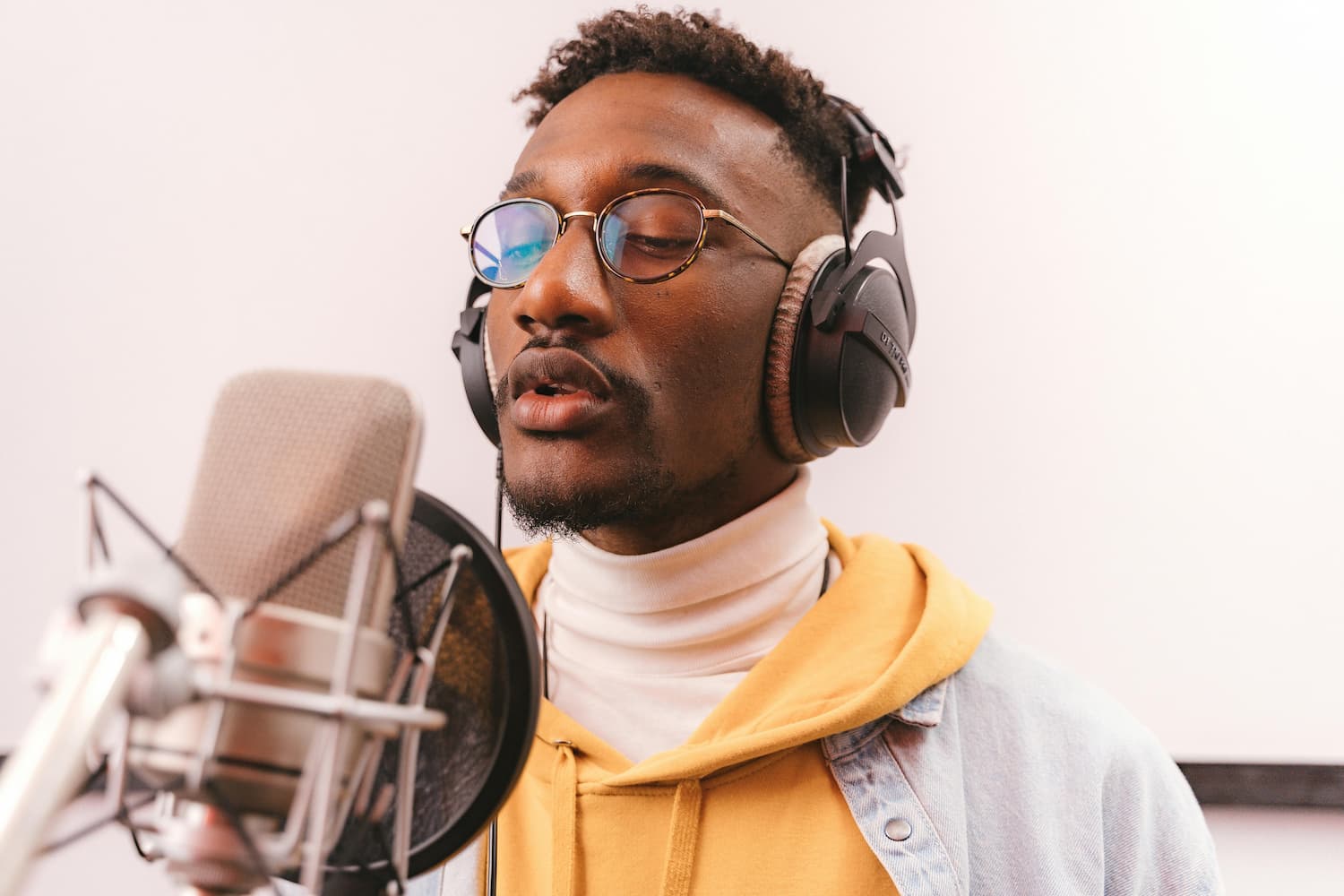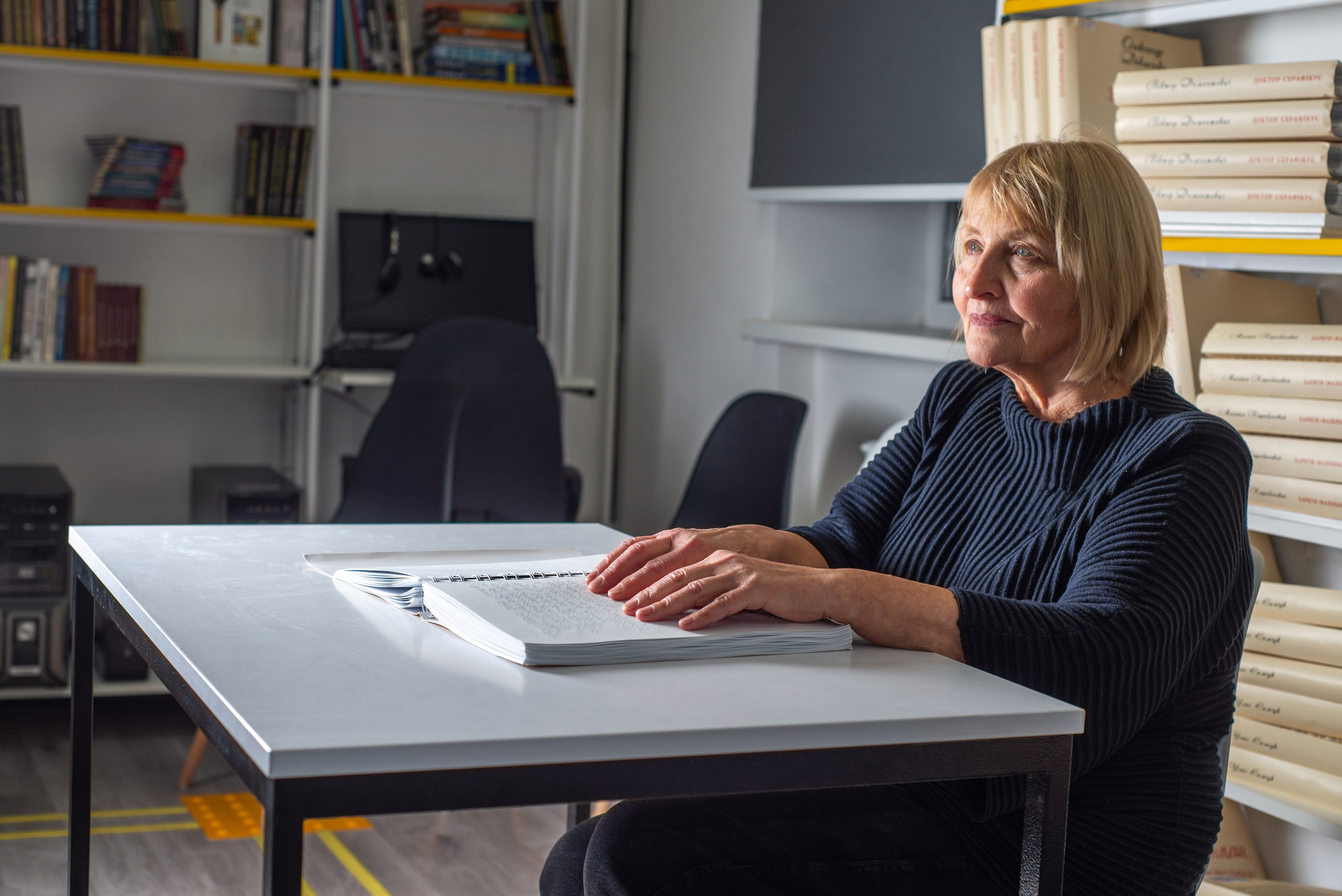Multi-Grammy award winner Brittany Howard kicks off season three of the Better podcast.
Howard, who has shattered stereotypes both as a solo artist and lead singer of The Alabama Shakes, continues to push for gender parity in the entertainment industry.
In this episode, Howard — musical guest during Great Place To Work’s For All™ Summit, Oct. 11-13, 2022 — talks about the importance of being seen in the world, why she’s thankful for having so many jobs before being famous, the power of friendships at work, and what she would tell other women who want to do what she does.
On gender parity in music—and her role model:
It’s good to see more women in my workplace, such as on the road, doing different types of jobs. We’re going in the right direction, but I still need to see more women producers and engineers being celebrated. It happens—they’re there, but I need more.
When you see the thing that you want to be, especially as a little girl, then you say, “Oh, she did it. I can do it.” For me, it was Missy Elliott, hands down. I saw that she was different. She looked different. Her flow was different, her clothes were different, the way she showed up in the world was different. I said, “Oh, I can do that. There’s a place for me.” Having these women celebrated in these roles, where we can all see them — more of that, please.
On the value of working so many jobs:
I really value the experiences I’ve had, of having so many different types of jobs. I value the people that I worked with. I understand what it’s like to work hard, to be underpaid, underappreciated, and never really being able to get over the hump. I’ve lived most of my life below middle class, and it taught me to be resourceful, to connect with people, to never judge people. All of those things came from those experiences. Now that I get to be the boss lady, I know how to treat people. I know how to treat people who work with me with respect, and honor them because I can't do what I what I do without them.
On why joining a band provided a sense of belonging:
Belonging is a very human thing. When I was younger, I wanted to have something that was my own. Something that couldn’t be controlled. No one was really allowed to have an opinion on it. Once I realized I could create, that’s all I want to do. And being in a band put me in a position of, “now someone's going to hear me and someone’s going to experience what I experience.” Even when I was younger, I didn't notice what I was doing, but being “seen” — as difficult as it can be even until this day — was empowering to me
On being “self-made”:
It looks that way, but I don’t think anybody’s self-made. It’s a thing we like to say, especially in America, because we love individualism. But it’s not true. There’s people around you all along the way that are lifting you up, or guiding you. And to anyone who wants to lead their own band: I say go for it, but 1,000%, know why you’re doing it. Do you want to express yourself? Do you want connection? Or do you want to be rich and famous?
On the meaning of songs from her Grammy-winning solo debut album, “Jamie:”
My overall message is that of acceptance, of trying to love all the different parts of myself, trying to understand people and where they’re coming from. It gives me more compassion towards myself when I understand people. All I want to do is tell my story a little bit, and there were some things that I wanted to talk about and that tends to be how I make music. Everybody is born with a gift, and I think that my purpose in life is to use that gift to bring some brightness to the world.
Thanks to Hilton and American Express for bringing Howard to the Great Place To Work Summit.
Subsribe to our podcast
Subscribe to Better wherever podcasts are available so you don't miss an episode of season three.
Roula Amire:
Welcome to Better by Great Place To Work, the global authority on workplace culture. I'm your host, Roula Amire, content director at Great Place To Work. On this episode, we speak with multi Grammy Award winner, Brittany Howard. Brittany Howard, welcome.
Brittany Howard:
Thank you. Thanks for having me.
Roula Amire:
You probably don't remember, but we've shared a room together. We've been in the same space. You didn't see me, but I saw you.
Brittany Howard:
Oh, where was that?
Roula Amire:
It was Chicago, July 2016, Civic [inaudible] Opera House. You were on stage with the Alabama Shakes, and it was just electric. So you didn't see me, but I saw you.
Brittany Howard:
Well, hello. Nice to meet you for the first time.
Roula Amire:
Now we're in a much more quiet and intimate setting for our second meeting.
Brittany Howard:
Face to face.
Roula Amire:
Face to face, yes. Now you're seeing me. So I'm from Ohio, I grew up in a small town, small college town, predominantly white. My parents were Middle Eastern. They spoke Arabic. So as a kid, being other wasn't easy. The need to belong is so strong, but especially when you're young. You grew up in the South as a biracial woman, and you've said you wanted to start a band since you were 11 years old. So did that ... I'm just curious about the impetus for that. Did you want to create a band because you felt that would connect to some type of belonging?
Brittany Howard:
Yeah, that's a good question. I think belonging is a very human thing, a very human need. And when I was younger, I don't think I understood I was doing it for belonging. I think I was younger, I just wanted to have something that was my own, something that couldn't be controlled. No one was really allowed to have an opinion on it. Once I realized I could create, it's all I wanted to do. And being in a band kind of put me in a position of now someone's going to hear me, and someone's going to experience what I experience. And being seen, even when I was younger, I didn't know that's what I was doing, but being seen as difficult as it even can be to this day was empowering to me. Yeah.
Roula Amire:
Being seen as difficult. How are you seen as difficult? How are you difficult?
Brittany Howard:
Being seen, being seen at all, being brave, being courageous because when I was younger, I was definitely other, like you can obviously relate to. But other, no one was really like me. I was tall, mixed race. I was kind of told, or I guess I saw when I was younger, you can be this, you can be that, you can fit in this box, you can fit in this box. There was no boxes for me, and I found it painful and kind of excruciating. So I was like, "Well, is it my job too then to create my own box and explain myself to people?" And I was a little resentful.
Roula Amire:
And that's so much pressure as a kid.
Brittany Howard:
Yeah.
Roula Amire:
Yeah, yeah.
Brittany Howard:
It's a lot of pressure.
Roula Amire:
Yeah.
Brittany Howard:
Making your own way. But now I'm older, and I can look back at that kid and be like, "Yeah, but you did it. You did it."
Roula Amire:
Yes. And that formed your ... Exactly. I mean, I remember when I was growing up and we would go to gas stations, and I would go in rest areas and I'd look for the license plates. You know the mini little license plates, everyone had their name on it?
Brittany Howard:
Oh, yeah. You'll not find one.
Roula Amire:
I'd see the Brittanys. I would love a name that was easily pronounced. I'd see Brittany, Jennifer, Susie, no Roulas, never Roula. I always looked. Yeah, you want to fit in. I wanted to check a box. But to your point, now that I'm older, I love ... I don't want anyone with my name. I love my culture, my background, but you-
Brittany Howard:
You got to go through that.
Roula Amire:
You got to go through it. And you come into your own, and it helped me have a sense of individuality, pride. I now love being other in many ways.
Brittany Howard:
In many ways, I do too. And in some ways, I don't.
Roula Amire:
Yeah. That's what I qualify, in many, not fully.
Brittany Howard:
In many ways, yeah. Sometimes I do just want to blend in and go about my business.
Roula Amire:
Yes. For me, when I get a coffee or something, sometimes I debate. They put: What's your name? Do I just go with-
Brittany Howard:
Kimberly.
Roula Amire:
Right. Or Roula. I want to spell it. What is it? Huh? For the record, I do usually say, "Roula." But there are times I'm like, "Let's just make this easy for everyone."
Brittany Howard:
I ain't got the time, the bandwidth.
Roula Amire:
I got to go. You went on to form many bands, most notably the rock band, Alabama Shakes, as front woman and guitarist. But like we've talked about, you didn't check any boxes for most of your career. You were told you don't look the part. Leaders of rock bands aren't typically women. They're not typically women of color. They're white men, typically. But you didn't listen to the noise, to people who said you weren't going to succeed. Five Grammys later, four with Alabama Shakes, one with your solo debut album, Jaime. I mean, you've shattered so many stereotypes. And as we've said, to be seen and see yourself in the world is so critical for all of us, but particularly for people who identify as marginalized, women, people of color. What would you tell those people who want to work in the music or entertainment industry? It doesn't sound like you lacked confidence as an up and coming artist. But was there advice you would've wanted to be told when you were up and coming, or any advice you'd share with people like you?
Brittany Howard:
I guess the advice I would give, we live a different time now even than when I was coming up, when Alabama Shakes was coming up. The internet was a great tool for us then, but it wasn't all encompassing. Nowadays, there's so many different social media platforms that people really feel like they need to master in order to have a presence in the music industry, which I mean, I'm not going to say that's not true.
But I guess my advice to people who are wanting to be a musician, especially if you want to be an artist, is still important to hang onto yourself because things move really fast, and a lot of people say they can help you. I would say, listen to your intuition first and foremost, and have great people to support you, be around you, people who can tell you that's wrong, or that's not good. And then you can use your own character to make a decision based off of what people who love you and support you say because you can't change with the wind. And with social media and everything becoming so fast moving, you can't change with every single thing. You got to remain, you have to keep your soul. You've got to keep your soul.
Roula Amire:
Who's your soul checker, then?
Brittany Howard:
My friends, I've got close friends, my managers, Kevin and Christine, my family, my community. And also, where I come from, I wasn't just born talented. You've got to work on it. You've got to work on it, and that's character building because people will be like, "That don't sound good." And it didn't, it didn't sound good. It was trash. But you don't let it-
Roula Amire:
Well, trash, I mean, trash to you might be-
Brittany Howard:
Sure.
Roula Amire:
It's not going to be [inaudible].
Brittany Howard:
One man's trash, right?
Roula Amire:
Right.
Brittany Howard:
But what I'm trying to say is, it doesn't happen overnight. You keep working on it. And when people tell you something's not good, then get better, but be your own guiding light, for sure.
Roula Amire:
I think I read you wanted to be the front woman for other bands, established bands. And they said, "No, no," so you just went and formed a bunch of your own. So for other people who want to lead, be you, be the Brittany Howards, being in a rock band, lead them, whatever they want to do, if it's a rock band, or in the entertainment industry, just start doing it, start creating it because you are self made, as they say. I mean, you-
Brittany Howard:
It looks that way.
Roula Amire:
Yeah.
Brittany Howard:
I don't think anybody's self made. I don't believe that. It's a thing we like to say, especially in America because we love individualism. Right? But it's not true, there's people around you all along the way that are lifting you up or guiding you. Right? So I don't know, I feel like I in a lot of ways got to shape where I'm going to be and what I'm going to do with my life, and I'm very grateful to have the opportunity because of those around me. You know what I'm saying? Even being here today, and to anyone who wants to lead their own band, I say go for it, 1000% know why you're doing it. Do you want to express yourself? Do you want connection? Or do you want to be rich and famous?
Roula Amire:
There you go. Look in the mirror and ask. What's your purpose? And if this is your purpose, follow it.
Brittany Howard:
Yeah. What's my purpose? Be rich and famous, absolutely. No, I'm joking, I'm joking. I'm joking, I'm joking, I'm joking.
Roula Amire:
In a room with me. So I'm sure you've seen the industry change over the years. What progress has it made when it comes to gender parity, supporting underrepresented voices in the community? Obviously, people look to you. There've been others that have been trailblazers. But whose job is it? I mean, whose job is it to push inclusivity, equality, so other women don't get told they don't look the part? Is it labels? Is it the media? Is it artists? Is it people who have made changes, like yourself? Where does the responsibility fall? It's everybody.
Brittany Howard:
It's everybody's job, everybody's job, everybody's job. I don't know how to add to that. It's everyone's job.
Roula Amire:
Has there been progress?
Brittany Howard:
Has there been progress? Absolutely, because we're sitting here talking about it right now. Big companies are talking about it. The Grammys are talking about it. The Oscars are talking about it. It seems like people do want to be more inclusive. And I think there's a problem sometimes where people are like, "Oh, we're supposed to be talking about this. Let's talk about it," which is great. Talking is the first step. Action is the next step, which I think that's happening. But I think we've got to keep doing what we're doing. Just talking about it with you here today is necessary. Who companies hire is an action that's necessary. Women led business owners, it's necessary for you to have other women working for you. I think all of that's necessary for us to be a more inclusive, understanding society.
Roula Amire:
What kind of action have you seen in the industry? So there's words, and then there's action, that you feel like you can point to and say, "That's good. I like that. This is going in the right direction."
Brittany Howard:
Look, it's good, it's good to see Cardi B's taking over charts. It's good to see women having more ownership in America over businesses. It's good to see more women in the workplace. It's good to see more women in my workplace, such as on the road doing different types of jobs. But I will say, I'm seeing it, but I still think there needs to be more. It's good work. We're going in the right direction. I still need to see more women producers. I still need to see more women engineers being celebrated. And it happens, they're there, but I need more because when you see the thing that you want to be, especially as a little girl, then you say, "Oh, she did it. I can do it."
For me, it was Missy Elliott, hands down. I saw Missy Elliott. I saw that she was different. She looked different. Her flow was different. Her clothes were different. The way she showed up in the world was different, and I said, "Oh, I can do that. I can definitely do that. There's a place for me." And I think just having these women celebrated in these roles where we can all see them.
Roula Amire:
They're there, but they need to be seen.
Brittany Howard:
Got to be seen, got to be talked about, got to be celebrated, so more of that, please.
Roula Amire:
Have you and Missy Elliott talked about any kind of collab?
Brittany Howard:
No. But I met her one time. I made it happen. I was at the Billboard Women's Awards, and I saw Missy Elliott. There was one little pause in the show for two minutes, so I just bee lined it over to her and I said, "Missy Elliott, I just love you so much. Can I take a photo with you?" I didn't have time to get it out. I didn't have time.
Roula Amire:
Look at you, fan girl.
Brittany Howard:
Yeah. I turned into butter.
Roula Amire:
And did you get the photo?
Brittany Howard:
Yeah, I got the photo. Yeah.
Roula Amire:
Was she like, "Hey, Brittany"? Was she like, "Sure"?
Brittany Howard:
Oh, she had not idea who I was. That's okay.
Roula Amire:
You got your photo.
Brittany Howard:
I got my photo and that's the story. I don't know if Missy Elliott listens to this, hey, call me on the phone, email me.
Roula Amire:
Before you became a full-time musician, you worked a lot of jobs, I mean, so many.
Brittany Howard:
I did.
Roula Amire:
You did. We'll just name a few. We have Kroger, taking you back to your bagging days.
Brittany Howard:
That's it.
Roula Amire:
Cracker Barrel, the post office, sanitation company. So you know what it's like to be an hourly worker, a frontline worker, which is a significant part of the workforce that we champion at Great Place To Work.
Brittany Howard:
Awesome.
Roula Amire:
Our research shows it's not the industry that makes a company great, it's the company. So we can't blame retail, for example, on a bad experience. It's not the industry inherently, it's the company. Great companies make them great for everyone, for women, people of color, et cetera. Out of all your jobs, did you ever work at company whose culture you'd call great?
Brittany Howard:
Yeah, working for myself was the first time that I ever said, "Wow, this is great." Cracker Barrel, no.
Roula Amire:
Kroger?
Brittany Howard:
No.
Roula Amire:
Post office?
Brittany Howard:
Especially not. And it wasn't because of the people I worked with. I feel like the people I worked with at the post office were all right. I liked some of them a lot. But it was a government job, they don't care about you. Terrible. I worked at Domino's Pizza too.
Roula Amire:
Domino's.
Brittany Howard:
Yeah.
Roula Amire:
Don't tell me you delivered.
Brittany Howard:
I didn't deliver. I was trying to make the pizzas because my friends worked there, but I was too slow, and they'd put me on the phones. And that's where I got this award winning personality, talking to people for hours.
Roula Amire:
When they ordered the pizza?
Brittany Howard:
Oh, yeah. No, you know what I'm saying, I pick up the phone for hours. You know what I mean? So, yes.
Roula Amire:
So those people listening ... At the Domino's where? What town? And what year?
Brittany Howard:
What year? I don't know. I don't remember. I was 17 years old working at the Domino's on County Line Road in Madison, Alabama, throwing pizzas with my good friend and bass player, Zach. And we were in there just trying to make a little money to spend on the weekends, one of them starter jobs.
Roula Amire:
We've all had them. Do you like the pizza? Do you eat the pizza?
Brittany Howard:
No, I don't eat the pizza.
Roula Amire:
Did you ever?
Brittany Howard:
I liked it when it was free. I mean, I liked it a little bit.
Roula Amire:
Free pizza, who doesn't like free pizza?
Brittany Howard:
I didn't say that.
Roula Amire:
We can edit that out.
Brittany Howard:
Oh, that's right. That's right. Yeah, love Domino's.
Roula Amire:
So we all have stories from work, good and bad. Clearly, you have some. We all have some. Is there, again, good or bad, any memorable work experience, or just work experience in general that influence how you work with other people today? I mean, you're an owner. You have a company. You're your own entity. Do you just do everything differently?
Brittany Howard:
I really value the experiences I had. I value having so many different types of jobs. I value the people that I worked with because I got to live a beautiful experience of what it's like to work hard, to be underpaid, underappreciated, and never really seeming to be able to get over the hump. I lived my life below middle class most of my life, and it taught me to be resourceful, taught me to connect with people. It taught me to never judge people. You never know what somebody's going through. All of those things came from those experiences. So now that I get to be the boss lady, I know how to treat people. I know how to treat people who work with me with respect and honor them because I can't do what I do without them.
Roula Amire:
Yeah, and pay them fairly, fair pay.
Brittany Howard:
Fair pay, absolutely.
Roula Amire:
You mentioned you really liked people you worked with over the years. Is there anyone who shaped any memorable experience you want to share?
Brittany Howard:
I mean, I worked for my best friend growing up, his name was Johnny. He's a red headed Italian kid, and his parents had a street sweeping business, and I really liked working there. I liked working there because they're a family and they work hard. And everything there was just kind of colorful and goofy, and it was just quite an experience. I used to pressure wash Target's ... You know the little red balls they got outside of Target?
Roula Amire:
Oh, yeah.
Brittany Howard:
I would pressure wash those. I picked up the cigarette butts. I cleaned up the landscaping. And I don't know, for some reason, kind of enjoyed it because-
Roula Amire:
So that was okay. It was an okay job.
Brittany Howard:
It was all right because I worked with my best friend and my best friend's parents, and they were really cool. And Power Effects Services, shout out, Power Effects Services, they do a great job. And I like seeing my work, I like seeing the effort of my work.
Roula Amire:
You saw the fruits of your labor.
Brittany Howard:
That Target looked sharp.
Roula Amire:
But that gets down to what we also talk about here is the power of friendships, the power of friendships at work. You work with your buddy. You like the family.
Brittany Howard:
Oh, yeah. That's life.
Roula Amire:
That goes with a long way. That's exactly.
Brittany Howard:
That's life.
Roula Amire:
Just like in the non work world. Are you friends with anyone from old jobs still?
Brittany Howard:
I mean, I'd say I mostly got friendships with everyone I've ever worked with. There's a few people that just not on the same wavelength, whatever.
Roula Amire:
That's life too.
Brittany Howard:
Whatever, I wish them well. I hope they're great. I hope they're doing great things and they got a hot tub and all that stuff, BMWs. But there's people like my best friends I worked with. I got an opportunity to work with my best friends a lot of times. And we're friends to this day. And when I'm around those people, it makes me feel like I'm home, but we can be anywhere. I can be anywhere, if I'm with my friend, I'm as good as home. I know I'm safe. I know I'm with someone who appreciates me, understands me, and we're having a good time. So absolutely, I still have long lasting friendships with people I worked with.
Roula Amire:
Let's switch to mental health. So mental health is certainly a big topic in the workplace, but really for everyone today. How did you keep healthy during the pandemic and now beyond?
Brittany Howard:
Oh, I'm not sure that I got out unscathed to be honest with you. I don't know if I did. I really tried to stay busy. I was really excited at first because I was like, "Oh, I have all this free time for the first time." And I was like, "This is amazing. I can do this. I can do that." And that's what I did, I went outside. I got into fishing.
Roula Amire:
Fishing?
Brittany Howard:
Yeah, I started a fishing account. It's called Brittany Be Fishing. I was out there. I fly fish. I do all kinds of fishing, cat fishing, deep sea fishing, you name it. That's something I really got into. And then my friends joined me. They all got into it.
Roula Amire:
Hold up. I need to just-
Brittany Howard:
Now I have a boat.
Roula Amire:
Let's just rewind for one second. So first of all, when the pandemic hit, were you like, okay, yeah, you have all this free time, were you performing? Was it down time, time anyway?
Brittany Howard:
No.
Roula Amire:
Or were you-
Brittany Howard:
I was meant to tour the record I had just put out, Jaime.
Roula Amire:
Jaime.
Brittany Howard:
Yes, it's named after my sister, who passed away when I was younger. I put this piece of work out and I was very excited. And I knew in my heart of hearts. I was like, "Wow, this is really meaningful and I'm excited to put this work into something that I've done all on my own, by myself." And I was just so excited to do that. And then the pandemic hit, and it completely cut my tour and schedule.
Roula Amire:
It came out in 2019.
Brittany Howard:
End of 2019. I was going to tour. Luckily, we did some tours before, but-
Roula Amire:
Still.
Brittany Howard:
Still, right there, chopped off. And it was like, "Whoa." I was not expecting that to happen. And I was disappointed, of course, but lots of people were disappointed during the pandemic, and honestly, I felt blessed that I was well and I had my health, and my friends were doing well. And it was kind of a scary time because: What's going to happen with the music industry? What's going to happen to these venues? What's going to happen to people who work the venues? The whole thing-
Roula Amire:
Would there be concerts again?
Brittany Howard:
You were there for it. Everyone was there for it. And it was anxiety inducing. So I thought, "I need to get out of my head. I need to get outside."
Roula Amire:
Let me take up fishing.
Brittany Howard:
I need to be somewhere where my phone doesn't work, so I go out to the woods, I go to the river, and I go fishing. And that was doing wonders for me.
Roula Amire:
Where in the world ... Where are we? Brittany Howard can just walk up to a river and fish and no one's ... It is remote.
Brittany Howard:
It is remote, but you wouldn't believe.
Roula Amire:
You don't have to say where it is because then everyone's going to start showing up.
Brittany Howard:
No. You wouldn't believe. I'll be out in the middle of nowhere, and I'll hear my name. Brittany? And I'll look, and there's just some river man.
Roula Amire:
Standing there with a fishing pole?
Brittany Howard:
Like, "Is that really you? What are you doing here?" I was like, "I'm fishing, doing the same thing you're doing." He's like, "Wow. Well, good luck." Thank you. You wouldn't believe how many times that happens. One day I was muskie fishing, so musky is a fish that looks like an alligator. They've got big teeth, very damaging if you get any part of your body in its mouth, terrifying fish. So I'm out there muskie fishing, and it's cold. When you go muskie fishing, it's got to be cold. It's got to be very uncomfortable for some reason, or they won't bite. And so I'm out there fishing all day, don't see ... I mean, actually, we did catch one. I didn't, but the boat goat a fish. We were not skunked, as they say.
Coming back in, and this dude is out there. I'm talking about, it's cold. This dude is on a boat passing by, and he goes, "You look like that lady from Alabama Shakes." I was like, "Yes, sir. That's me." And he was like, "Wow." He's like, "Is that a muskie pole?" I was like, "Yeah." He's like, "Are you out here catching muskies?" I was like, "Yeah, we got one in the boat." He's like, "Oh, my God." I don't know, anyways.
Roula Amire:
He was impressed with-
Brittany Howard:
Oh, blew his mind. Blew his mind.
Roula Amire:
Of course it did.
Brittany Howard:
I was like, "Good luck, buddy." So that's what I did during the pandemic. And because I did something that was so fulfilling like that and was so different than what I do every day, it gave me energy to enjoy what I do, so I was able to still write music because then it felt like a gift instead of like this is my job, I must stay focused. I must stay in my lane. I must be better. I must always dedicate all of my hours into honing this craft. I took a break, I took a break, best thing I could have done for my mental health.
Roula Amire:
How far into the pandemic did you take up fishing?
Brittany Howard:
Almost immediately.
Roula Amire:
So you've been fishing for two and a half years.
Brittany Howard:
Well, I've been fishing since I was probably around four years old, but when I was a teenager, I was like, "Nah, that's not cool." And then when I was in the Shakes, I didn't have really time to do it. And then pandemic hit, I got right back into it. Yep. You want to go fishing?
Roula Amire:
I'd go fishing with you anytime, any day, anywhere.
Brittany Howard:
Roula, we are in Orlando. We can go right now. I've got about three hours.
Roula Amire:
I got time. Can we end this early?
Brittany Howard:
Let's go.
Roula Amire:
Do you have a fishing pole, two?
Brittany Howard:
No, but I think it's easy to. You just go down the beach and get one, I think. Right? Go get some sharks.
Roula Amire:
Do you still make time? Is this part of your life now? Or was this a COVID thing?
Brittany Howard:
This was such a big part of my life that I almost walked away from the music industry to join a professional fishing company and start a whole television program. It got really big. Then I had to walk away from fishing, and I had to-
Roula Amire:
And walk back into the music industry.
Brittany Howard:
Had to re-investigate myself. And here I am, I'm back, I'm back.
Roula Amire:
You're back. So you brought up Jaime, that came out 2019.
Brittany Howard:
That's right.
Roula Amire:
Everyone should listen to it on repeat.
Brittany Howard:
That's right. Please listen to it.
Roula Amire:
Grammy award winning album, did we mention that? Your debut solo release.
Brittany Howard:
That's it.
Roula Amire:
So it touches on a lot of topics that are important to our audience, in songs like Georgia, 13th Century Metal, History Repeats. So when you were making the album, how were you hoping those songs would influence listeners? What messages were you trying to get across through those songs?
Brittany Howard:
I'd say my overall message is that of acceptance, of trying to love all the different parts of myself, trying to understand people, where they're coming from, even if I don't like them. I like to understand people. It gives me more compassion towards myself when I understand people. So all I wanted to do was tell my story a little bit, and there's a great big story, so it's not all in there. But there was just some things that I just wanted to talk about, and that tends to be how I make music. It's like an exploration of myself because I must. I don't know. Everybody's born with a gift. Right? And I think that my purpose in life is just to use that gift to bring some brightness to the world. And I think if that inspires people to use whatever they have to do that, kindness is a very small gesture and it can do very big things.
Roula Amire:
And this was inspired by Jaime, your sister, who had a rare eye cancer, eye disease.
Brittany Howard:
Yeah. So my sister and myself were born with something called retinoblastoma, which is basically tumors that grow in your eye. Sometimes they're benign. Sometimes they're malignant. And my sister's case, technology wasn't really that, to be able to save her at that time. I'm about four years younger than my sister. So when I came along, they froze them, no problems. I'm good to this day. But unfortunately, they didn't find out until my sister was about six years old, so she passed away. And she was an amazing person.
Roula Amire:
You were eight when she passed away.
Brittany Howard:
Right, yeah. So to say I wrote the record inspired by her, I'd say I live my life inspired by her, to be honest with you.
Roula Amire:
Yeah. I lost an important person when I was nine, lost my mom. And I didn't think that had any effect on me. Isn't this just so bananas? Because I had a great dad, I had a great family. I was happy doing my thing. And it actually wasn't until the pandemic that I was like, "Wait a minute." I don't know if you had this experience, but talk about a delay of decades. Oh, yeah, that shaped me. And I just feel like she's always been with me.
Brittany Howard:
[inaudible].
Roula Amire:
Yeah. So it's not-
Brittany Howard:
It's beautiful. And because of it all, I've grown to be the person I am today, which I am proud of. I'm the type of person, I always want to work on something. I always want to make it better, could be better. I don't like to stop and look around or get comfortable. Makes me uncomfortable to be comfortable. But during the pandemic, I was like, "What's so bad about that? What's so bad about smelling the roses, being appreciative of where I am and who I've become?" Maybe there's more work on the way. But that's fine, that's life. I'll get there. Learn to love yourself where you are.
Roula Amire:
Oh, yeah.
Brittany Howard:
That's something. That's something.
Roula Amire:
That was the theme for me during the pandemic too, not only loving yourself, but like you said, being proud of yourself.
Brittany Howard:
Being proud of yourself.
Roula Amire:
Yeah, yeah. And I would always think, "Would my mom be proud of me? What would she say?" And I thought, "Well, if I'm proud of myself, she's going to be proud of me," so I'll just take that.
Brittany Howard:
I'm sure your mother's proud of you. And my sister still probably would beat me up to this day, and make fun of me to this day, which I need that.
Roula Amire:
Yeah. She's still your sister.
Brittany Howard:
I need to get checked.
Roula Amire:
Yeah. Oh, Brittany, thank you for being here today.
Brittany Howard:
Absolutely.
Roula Amire:
Thank you for the conversation.
Brittany Howard:
For sure.
Roula Amire:
We appreciate you, your music, and all you're doing, and all that's yet to come.
Brittany Howard:
Thank you so much. I'm happy to be here today. I think it's really cool, this whole event and how it's inspiring us to treat each other with respect and dignity and do better, so I like that. I rock with that.
Roula Amire:
We're wrapping early because we've got to go fish.
Brittany Howard:
Got get them sharks.
Roula Amire:
Let's go. I'm serious. I only ... You know what I have tonight to do?
Brittany Howard:
What?
Roula Amire:
Go to your show.
Brittany Howard:
All I've got to do is put on a show, so let's go get sunburned.
Roula Amire:
Thank you for listening to this episode of Better. You can stream this and previous episodes wherever podcasts are available.




